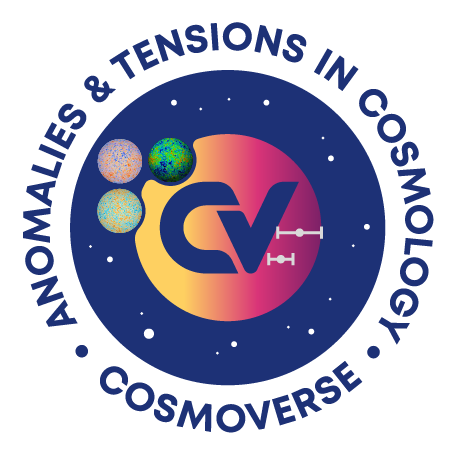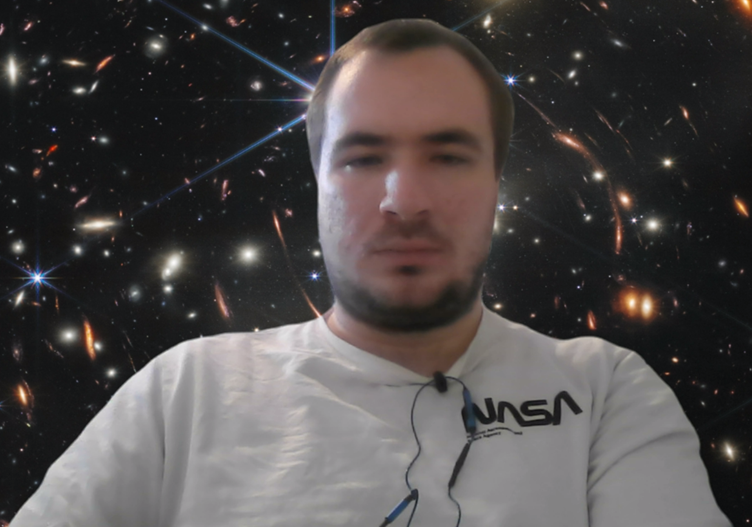What is your name, affiliation, academic position, and job title?
My name is Marcin Postolak. I am currently a 3rd year PhD student of theoretical physics at the University of Wrocław.
What is your journey?
I come from Racibórz (a city of about 50,000 inhabitants in Upper Silesia (Poland), close to the border with the Czech Republic). The whole period of my studies so far has been connected with Wrocław.
What is your field of research and/or what project are you involved in?
Within the scope of my research are the theories of modified gravity (e.g., scalar-tensor) and, more specifically, modified cosmological models. My first research involved an attempt to explain the current ratio of dark matter to baryonic matter in the Universe using the scalar field as an effective description of the dark matter phenomenon under the assumption that it interacts with baryonic matter. I am also strongly interested in physical models attempting to describe dark matter such as SFDM (e.g. Ultra-light Bosonic Dark Matter etc.), alternative models to cosmological inflation (e.g., bounce cosmology). Furthermore, I am constantly trying to deepen my knowledge in the phenomenological aspect of cosmology.
What are your research plans?
I would very much like to explore issues related to the dark sector of the Universe and, in particular, the so-called Ultra-light Bosonic Dark Matter models and approaches where no initial singularity is present, e.g. matter bounce, cyclic and ekpyrotic models. I am also very intrigued by the role of thermodynamics in cosmology.
How does CosmoVerse fit within those plans?
CosmoVerse, from my point of view, represents an opportunity to establish scientific cooperation on an international level, which is extremely important in terms of the scientific development of a young scientist.
What new skills would you like to learn in the next year?
Definitely programming skills (e.g., Python) and data analysis (e.g. from CMB, SN Ia etc.).
What are the most exciting open questions in your research area?
Undoubtedly, those concerning the dark sector of the Universe and its possible beginning (if it had one in general): Is dark matter a new kind of particle beyond the standard model, a new kind of matter/energy in the Universe or a modification of Einstein’s theory? What in fact is the dark energy? Is it a cosmological constant or a dynamical quantity? Can gravity be quantized at all, and if so, what kind of theory would we then obtain? Did the Universe have a beginning (in the broad sense) or is it subject to some kind of cyclic evolution?
What advances or new results are you excited about or looking forward to?
I would very much like to wait for the moment when we detect the primordial gravitational waves. Perhaps then we will be able to verify a good portion of the inflationary (or alternatives models) and get more information from them regarding the earliest stages of the evolution of the Universe.
What is your view on cosmic tensions? How does your work connect with this open question in the community?
So far, there is no clear consensus on this problem in cosmology, however, more and more solutions to these tensions related to broad measurement errors are being systematically rejected which could slightly indicate the physically fundamental nature of solutions to this problem such as modified theories of gravity etc. My current and future research will be very much related to this topic, because of my scientific interests.
What is the biggest obstacle that is slowing down your research field right now?
I think it is the lack of a quantum theory of gravity (if it can be quantised). In order to attempt to fully describe the earliest stages of the evolution of the Universe, it is necessary to go beyond the regime of classical theories and take into account quantum effects, because the Big Bang model is essentially an attempt to apply the laws of classical physics in a regime beyond that.
What role do you think a community network like CosmoVerse can play in developing theoretical astroparticle physics and cosmology?
Initiatives such as CosmoVerse provide a foundation for the development of astrophysics and cosmology. It is a venue for international cooperation between scientists, especially for young scientists.
What do you like and dislike about being a scientist?
Being a scientist is not just a job, in my opinion, it is a way of life. What I value most is the fact that every day I learn something new and discover new aspects of not only cosmology but also science in a broader sense. I do not experience monotony. There are also negative sides to this profession, such as the lack of financial stability in the early stages of the career.
What’s your favourite food? Why?
I’m a fan of Italian cuisine, especially all kinds of pasta dishes. In addition, I like all kinds of cheese.
Your favourite scientist and/or science fiction film?
Favourite scientists: Stephen Hawking, Albert Einstein, Georges Lemaître and Jim Peebles.
Movies and TV series: “Cloud Atlas”, “Arrival”, “Interstellar”, “Doctor Who” and “The Big Bang Theory” (Bazinga!).
How do you relax after a hard day of work?
My main safeguard is playing the keyboard, because I focus 100% on the music then. I also love reading books, listening to podcasts as well as watching documentaries and visiting the Wrocław zoo.
What non-physics interests do you have and want to share?
I am very interested in history, and more specifically in the history of the 20th century (World War II, interwar period, Cold War period). In addition, I play the keyboard.
What do you hope to see accomplished scientifically in the next 50 years?
I would like to make at least a small contribution to explaining the dark sector of the Universe and shedding new light on the earliest stages of the Universe’s evolution. Make a contribution to this scientific relay of generations.
In your view, what’s the most important challenge that humanity faces currently?
I see at least 2 such challenges. The first is undoubtedly the issue of human-induced climate change. So far, nothing concrete has happened in this aspect. Humanity does not seem to see the threat, as it prefers to continue living a prosperous and comfortable life at the expense of the environment and the destruction of our planet. Earth will survive without humanity, we without the right conditions will not anymore. The second problem is the deepening scientific dissonance in society. More and more people expect short and easy answers to very complicated questions. We as scientists know that it is not possible to formulate simple answers to difficult questions. People also need to be taught how to obtain and verify information.
What question would you have liked us to ask you, and what would you have answered?
Indeed, in the current description of the evolution of the Universe, are we missing some fundamental aspect related to cosmological tensions?
For obvious reasons, I would be delighted if, in fact, this was the case, as it would represent a huge new field in the study of the Universe for people like me. The history of cosmology shows that completely unexpected phenomena and objects were often discovered.

